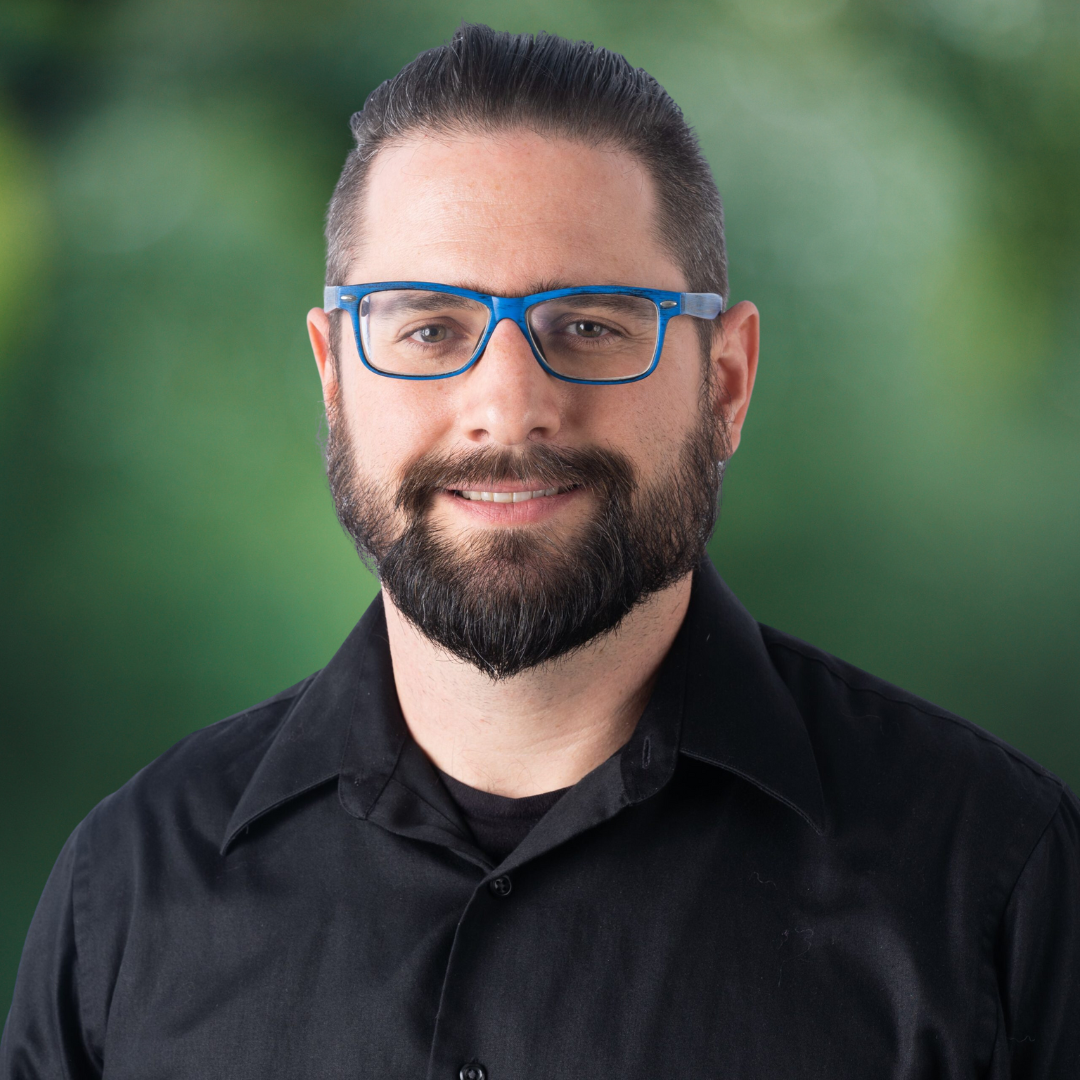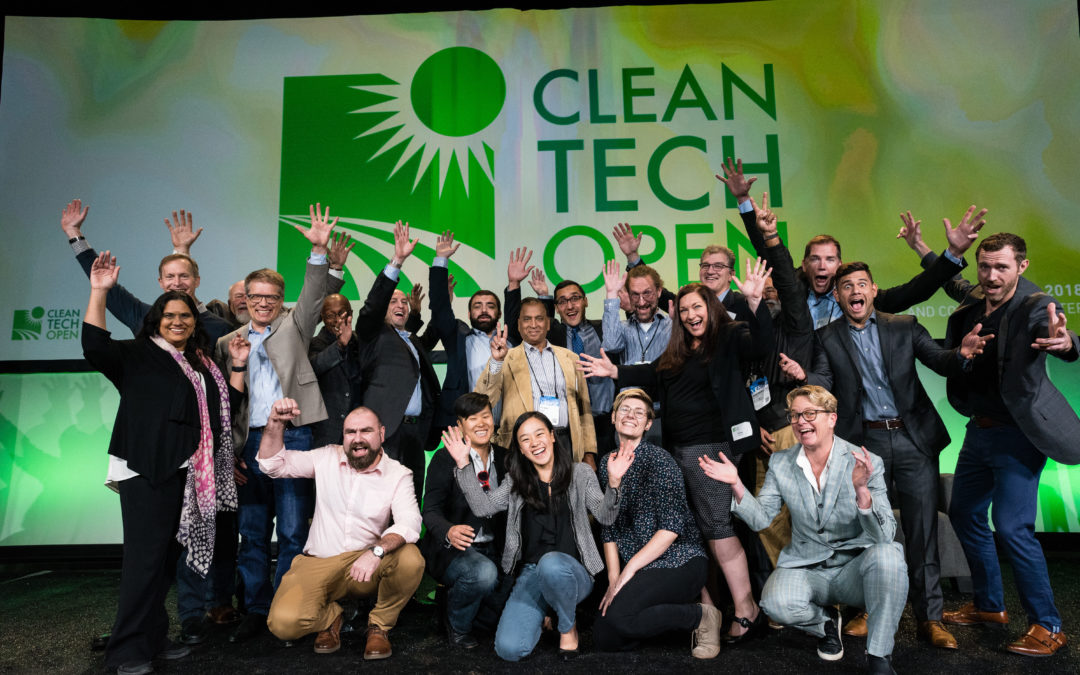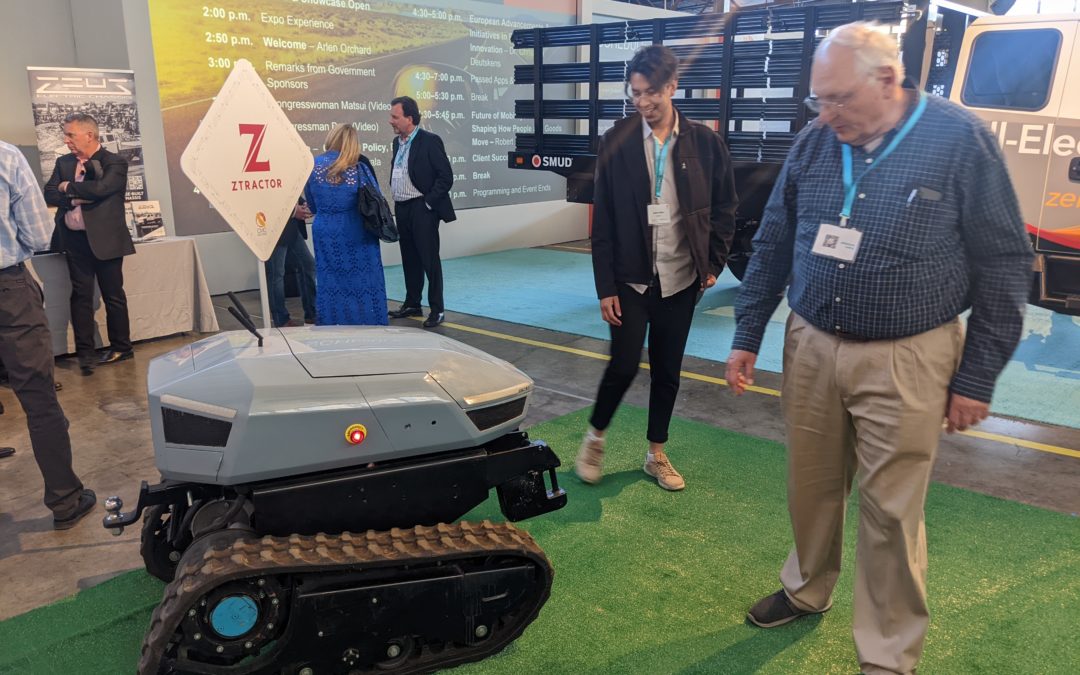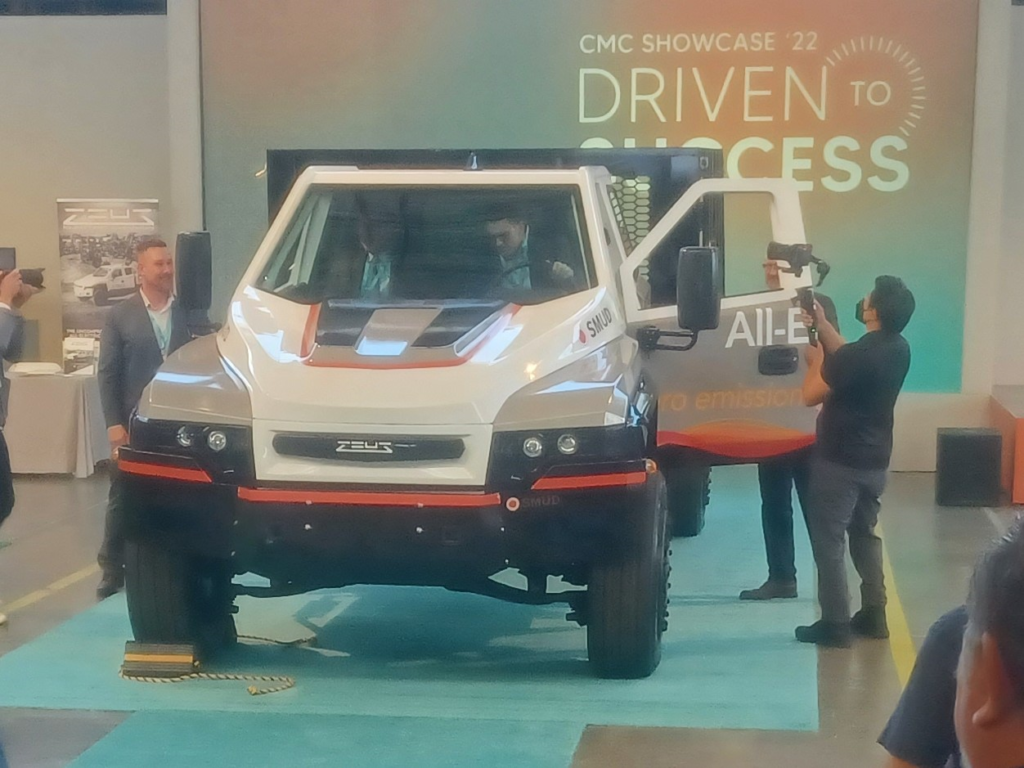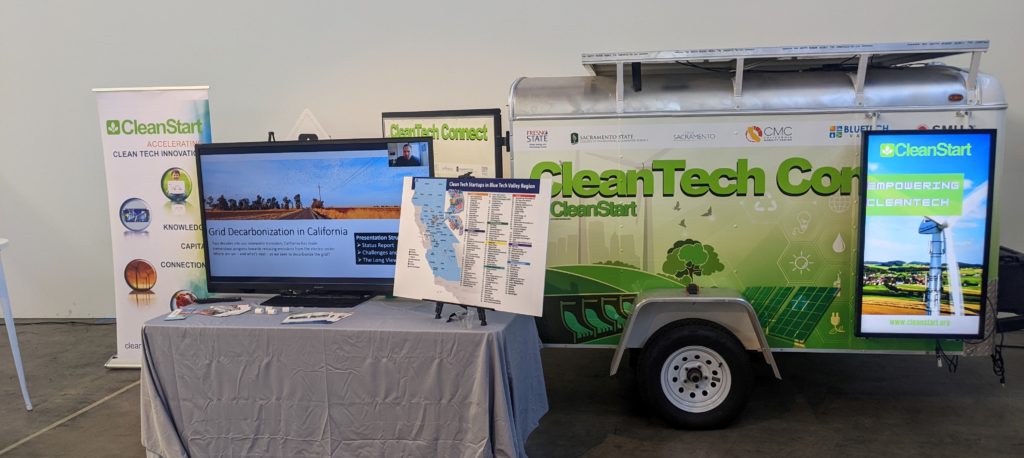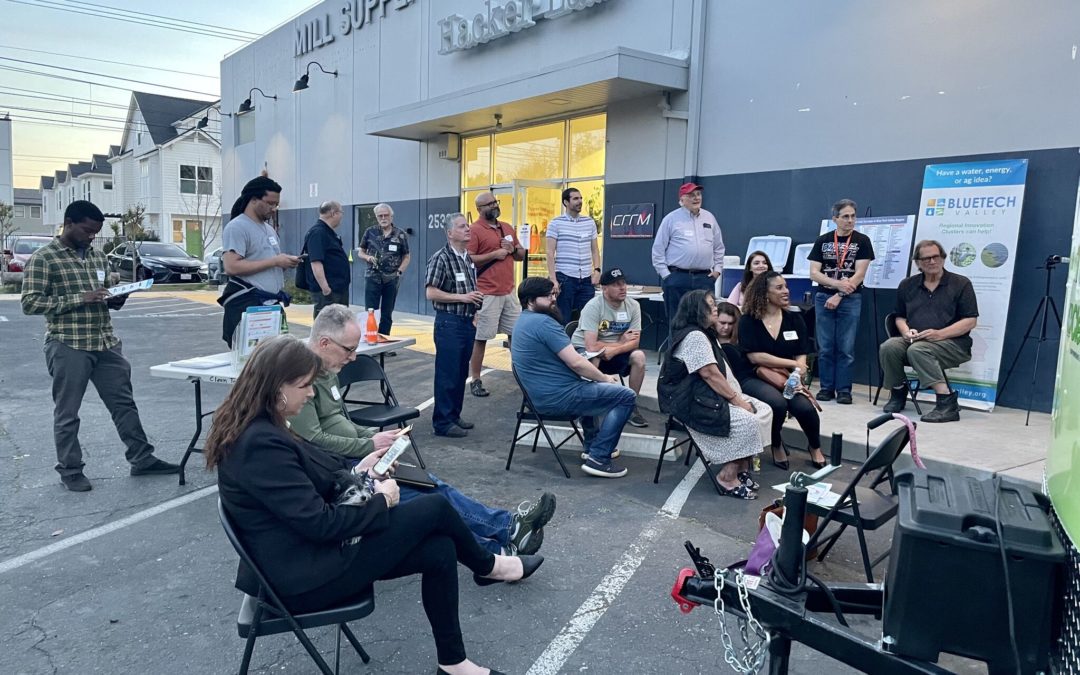
CleanTech Meetup Returns to in Person
After 757 days with 100 virtual events CleanStart returned to in person networking with the CleanTech Meetup at the Hacker Lab on March 24th. It was exciting to see new faces and old ones. We were joined by Kriztina Palone, Workforce Development Manager at City of Sacramento’s Office of Innovation and Economic Development, who helped in bringing together an exciting new tool in our efforts to connect the community to the Clean Tech Transition, the Cleantech Connect trailer.
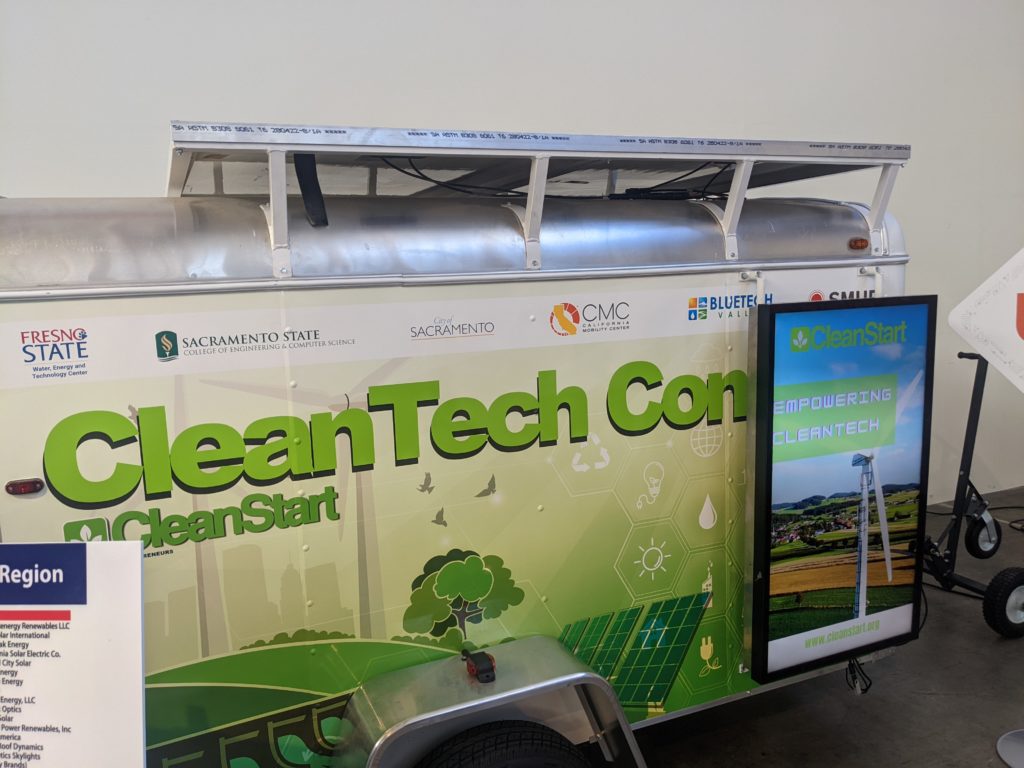
CleanStarts out reach trailer, Cleantech Connect
We started this trailer back in 2020 before, well, everything. Now, with help from the CMC, BlueTech Valley, and the City of Sacramento, we have a trailer to help connect the larger community to the energy transition and inspire new entrepreneurs building the region as a clean tech hub. The trailer is a mobile event station, with Solar, Batteries, PAs, and TVs to help educate people on clean tech and entrepreneurship. Attendees loved the trailer we describe as our own little Nano Grid.
After networking, Kriztina Palone joined CleanStart’s Executive Director Thomas Hall for a bar stool discussion about how the city is leveraging funds and community groups to prepare Sacramentens for future careers. Palone is leading a second round of “Clean + Green Workforce Pathways Discussions” with industry leaders, local companies, and stakeholders to get input on what priorities the city should support. Palone shared how they are bringing together businesses and communities in a shared goal in taking advantage of the energy transition to create jobs and support equitable economic development. It is not just a policy goal for Palone but a personal one, wanting to see the region she grew up in thrive and grow.
A big opportunity discussed was bringing groups together to create a community energy project. Palone highlighted being from Del Paso she would love to see local communities benefit and grow. A community Energy Project could coordinate resources to get larger community and economic returns. We encourage companies to engage with Palone and the City so we can build these projects.
If you want to hear more check out the video below, and make sure you subscribe to attend future meetups.
ABOUT THE AUTHOR
Thomas is the Executive Director of CleanStart. Thomas has a strong background in supporting small businesses, leadership, financial management and is proficient in working with nonprofits. He has a BS in Finance and a BA in Economics from California State University, Chico. Thomas has a passion for sustainability and a commitment to supporting non-profits in the region.
Sponsors




Weintraub | Tobin, Revrnt, Moss Adams, PowerSoft.biz, Greenberg Traurig

